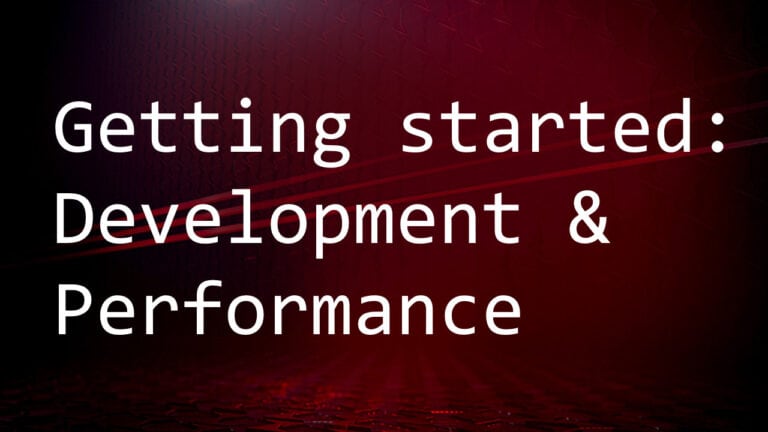# Copyright (c) 2023 Advanced Micro Devices, Inc. All Rights Reserved.
"""
Implementation of stable_baselines3.common.vec_env.VecEnv backed by a Schola Environment.
"""
from collections import OrderedDict
from difflib import unified_diff
from functools import cached_property
from typing import Dict, List, Optional, Tuple, TypeVar, TypedDict, Union
from venv import logger
import stable_baselines3 as sb3
from schola.core.env import ScholaEnv
from stable_baselines3.common.vec_env import VecEnv as Sb3VecEnv
from stable_baselines3.common.vec_env.subproc_vec_env import _flatten_obs
from schola.core.spaces import (
DiscreteSpace,
MultiDiscreteSpace,
BoxSpace,
MultiBinarySpace,
DictSpace
)
import numpy as np
import gymnasium as gym
from schola.core.error_manager import EnvironmentException
from schola.core.utils import nested_get, IdManager
import logging
T = TypeVar("T")
[docs]
class VecEnv(Sb3VecEnv):
[docs]
def __init__(
self,
unreal_connection,
verbosity: int = 0
):
self._env = ScholaEnv(
unreal_connection,
verbosity,
)
self.id_manager = IdManager(self._env.ids)
# we just use the default UID to get the shared definition
obs_space = self._env.get_obs_space(*self.id_manager[0])
action_space = self._env.get_action_space(*self.id_manager[0])
#test that everything is setup correctly
for env_id, agent_id in self.id_manager.id_list:
assert self._env.get_action_space(env_id,agent_id) == action_space, f"Action Space Mismatch on Agent:{agent_id} in Env {env_id}.\\nGot: {self._env.get_action_space(env_id,agent_id)}\\nExpected:{action_space}"
assert self._env.get_obs_space(env_id,agent_id) == obs_space, f"Observation Space Mismatch on Agent:{agent_id} in Env {env_id}.\\nGot: {self._env.get_obs_space(env_id,agent_id)}\\nExpected:{obs_space}"
logging.debug(action_space)
logging.debug(obs_space)
self.reset_infos = [{} for _ in range(self._env.num_agents)]
self._seed : Optional[int] = None
self.options : Optional[Dict[str,str]]= None
super().__init__(self._env.num_agents, obs_space, action_space)
[docs]
def close(self) -> None:
return self._env.close()
[docs]
def env_method(method_name, *method_args, indices=None, **method_kwargs): ...
[docs]
def get_attr(self, attr_name, indices=None):
return [None for x in range(0, self._env.num_envs)]
[docs]
def reset(self) -> Dict[str,np.ndarray]:
obs, nested_infos = self._env.hard_reset(seeds=self._seed, options=self.options)
self._seed = None
self.options = None
for env_id in nested_infos:
for agent_id in nested_infos[env_id]:
uid = self.id_manager[env_id, agent_id]
self.reset_infos[uid] = nested_infos[env_id][agent_id]
# flatten the observations, converting from dict to list using key as indices
obs = self.id_manager.flatten_id_dict(obs)
#flatten even more, for sb3 compatibility
obs = _flatten_obs(obs, self.observation_space)
return obs
[docs]
def env_is_wrapped(self, wrapper_class, indices=None) -> bool:
if indices is None:
indices = (x for x in range(len(self._env.ids)))
return [False for x in indices]
[docs]
def seed(self, seed:Optional[int]=None) -> None:
if not seed is None:
self._seed = seed
[docs]
def set_options(self,options:Optional[Dict[str,str]]=None) -> None:
"""
Set the options for the environment.
Parameters
----------
options : Optional[Dict[str,str]], optional
The options to set, by default None.
"""
if not options is None:
self.options = options
[docs]
def set_attr(self, attr_name, value, indices=None): ...
[docs]
def step_async(self, actions: Union[List[np.ndarray], List[Dict[str,np.ndarray]]]) -> None:
#actions can come in as a list of flattened tensors so we need to unflatten them
if isinstance(actions[0],np.ndarray):
unflattened_actions = [OrderedDict() for _ in actions]
for i,action in enumerate(actions):
start_dim = 0
for name, space in self.action_space.items():
#TODO apply any necessary DTYPE conversions here (everything is a float32 otherwise)
unflattened_actions[i][name] = action[start_dim:start_dim+len(space)]
start_dim+=len(space)
else:
#actions came in as a dict. how nice!
unflattened_actions = actions
#convert vector to Nested dictionary
actions = self.id_manager.nest_id_list(unflattened_actions)
self._env.send_actions(actions)
[docs]
def step_wait(self) -> Tuple[Dict[str,np.ndarray],np.ndarray, np.ndarray, List[Dict[str,str]]]:
observations, rewards, terminateds, truncateds, nested_infos = self._env.poll()
array_dones = np.empty((self._env.num_agents,))
array_rewards = np.asarray(self.id_manager.flatten_id_dict(rewards))
array_observations = self.id_manager.flatten_id_dict(observations)
infos = [{} for _ in range(self._env.num_agents)]
for env_id in nested_infos:
for agent_id in nested_infos[env_id]:
uid = self.id_manager[env_id, agent_id]
#safe because we are iterating over nested_infos
infos[uid] = nested_infos[env_id][agent_id]
envs_to_reset = []
for env_id, agent_id_list in enumerate(self.id_manager.ids):
any_done = False
all_done = True
for agent_id in agent_id_list:
uid = self.id_manager[env_id, agent_id]
array_dones[uid] = (
nested_get(truncateds, (env_id, agent_id), False) or nested_get(terminateds, (env_id, agent_id), False)
)
any_done = any_done or array_dones[uid]
all_done = all_done and array_dones[uid]
#We don't handle the case where 1 agent ends early currently.
if(any_done):
if(all_done):
envs_to_reset.append(env_id)
else:
raise EnvironmentException(f"SB3 with multi-agent environments does not support agents completing at different steps. Env {env_id} had agents in different completion states.")
# following the sb3 vec env guideline we self reset
if len(envs_to_reset) > 0:
resetted_obs, reset_infos = self._env.soft_reset(envs_to_reset)
self.reset_infos = [{} for _ in range(self._env.num_agents)]
for env_id in reset_infos:
for agent_id in reset_infos[env_id]:
uid = self.id_manager[env_id, agent_id]
#safe because we are iterating over nested_infos
self.reset_infos[uid] = reset_infos[env_id][agent_id]
for env_id in envs_to_reset:
for agent_id in self.id_manager.partial_get(env_id):
uid = self.id_manager[env_id, agent_id]
#Observations of the last step of the episode go into the info section
infos[uid]["terminal_observation"] = observations[env_id][agent_id]
infos[uid]["TimeLimit.truncated"] = (
truncateds[env_id][agent_id]
and not terminateds[env_id][agent_id]
)
# put the new observations from the start of the new episode into the returned obs
array_observations[uid] = resetted_obs[env_id][agent_id]
return _flatten_obs(array_observations, self.observation_space), array_rewards, array_dones, infos














